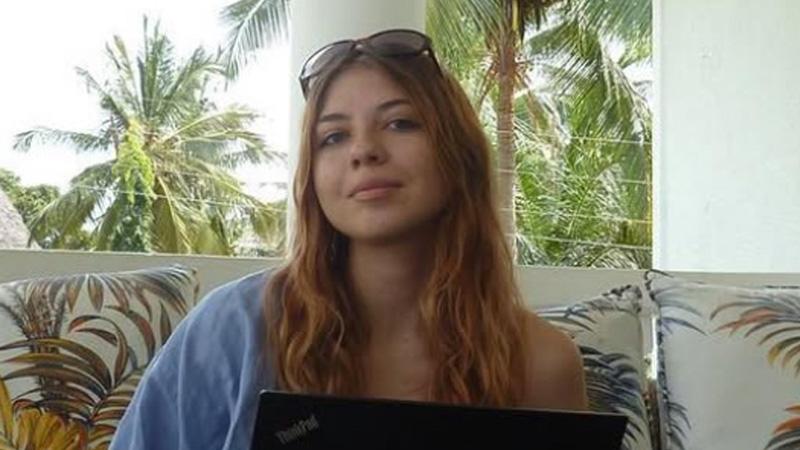Alexandra Bukhareva is a Politics and International Relations BA Honours graduate who was part of Westminster’s 2023 United Nations (UN) internship cohort. Alexandra has shared her story to inspire future Westminster students, from her internship at the UN’s International Organisation for Migration (IOM) in Nairobi, to her important role today working on rapid humanitarian support in Somalia.

Why did you decide to study Politics and International Relations at the University of Westminster?
I’m from Kazakhstan but I wanted to study abroad because of the variety of things you experience when moving out of your country of origin. I started looking through the different options of what courses were available and what they offered, like the modules you will study, the career options and extracurricular activities you can do. The Politics and International Relations (IR) course at Westminster seemed to be very diverse compared to a few other options that I was looking at and I received a full scholarship.
What made you apply for Westminster’s UN internship programme?
I applied to the internship because international development was an interest of mine. Through studying Politics and IR you learn a lot about international organisations and their role in international development. I knew that at some point I wanted to end up working for one of those international organisations but I didn’t expect it to be as early in my career as it happened. I would say that the day I got the internship was one of the most life-changing days of my life so far because from that moment I prepared to move to Africa, and I’m still here!
What was your favourite part of the internship experience?
There are a few things that I found particularly amazing about the University of Westminster having this internship programme with the UN. First of all, unlike many other internships, in the UN you are not considered an intern, but a staff member, so people did not judge me based on not having enough work experience before going there. I was dropped from the university environment into the work environment, so I had no choice rather to adapt these new conditions and try my best to exceed people’s expectations.
Another great thing about the partnership is that the University of Westminster provided some financial support for me. Westminster helped me to financially settle down and spend the nine months of my internship here without thinking of it as a financial burden. I know many people who receive offers for internships and cannot accept because they cannot provide for themselves, so that’s a second good thing amongst all the others with this experience. It’s a very life changing turning point.
What would you say is the best part of doing an international internship?
The good thing about changing your environment is that you have a completely different perspective on international development, especially from interacting and learning from local people. For example, as a part of my course at Westminster we studied a lot about the impact of colonialism and decolonisation in Africa, but through interactions with local people you learn a totally different perspective that enriches your understanding of the concept of development. It’s super interesting to get to know people’s cultures, perspectives, opinions and live in such a beautiful place.
What skills did you learn throughout your internship?
First of all, time management. For example, if there is a proposal to submit to a donor you cannot just miss the deadline, or you risk losing the money for the whole mission because of your inability to time-manage or prioritise. Then communication skills and networking too. I feel way more comfortable just starting a conversation with a random person and know that I can contribute to the discussion and my opinion will be valued.
You secured a full-time position after your internship. What does this involve?
I originally worked as a Programme Support Consultant but I now work in implementation. The current project that I’m working on is building a mechanism in Somalia that supports local and international partners with the aim to provide rapid humanitarian support in the quickest manner possible.
What’s next?
I’m asking myself this question every day! I think there are a few options. Either I will start my Master’s in the next academic year and then go back to Implementation in the IOM. I really like the IOM and the work it is doing, so I would like to continue after my Master’s. Or maybe I will work a bit more and do my Master’s in a few years. I would say for now they are my next steps.
What advice would you give to Westminster students currently applying for the 2025 internships?
Keep an open mind and apply to as many of the positions as possible. You never know where you will be the best fit; sometimes you might think you’re not the right fit, but you will be eventually! Try to prepare for the interview in advance, research the context of the country you’re applying for and do a bit of digging because the people taking your interview will appreciate it a lot. Just try to be fearless - even though it’s such a cliché. You’re young and at an age which allows you to make mistakes, so don’t overthink it!
Applications are currently open for the 2025 UN internship cohort, which has been expanded this year to offer 19 internships for Westminster students at IOM offices across Europe, Asia, Africa and South America. Students who wish to be considered must apply by Friday 24 January.
To ensure all students can access this initiative, interns receive financial support from the University through the Turing Scheme as well as generous funding from the Quintin Hogg Trust and Westminster alumnus and donor Ken Subraj.
Learn more and apply for the United Nations internships through the University of Westminster.


